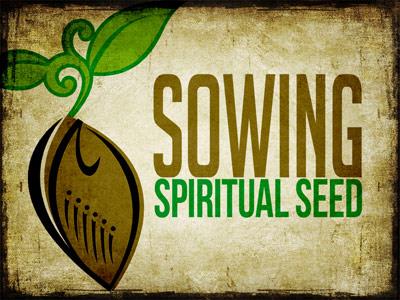-
The Kingdom Parables – The Fourth – The Leaven – Part 1 Series
Contributed by Ron Ferguson on Oct 31, 2025 (message contributor)
Summary: The study of the Kingdom Parables continues, this time the Leaven. There is misunderstanding on what the leaven really is and we look carefully at that. Also the Roman Catholic church and leaven; and the Jews and leaven. What does this parable mean in context?
THE KINGDOM PARABLES – THE FOURTH – THE LEAVEN – Part 1
[A]. INTRODUCTION TO THE PARABLE AND CATHOLIC TEACHING
We are coming to the fourth parable in the set of seven Kingdom Parables that the Lord delivered and recorded in Matthew’s Gospel. This parable is known as The Parable of the Leaven. It occupies just one verse.
{{Matthew 13:33 “He spoke another parable to them, “THE KINGDOM OF HEAVEN IS LIKE LEAVEN which a woman took and hid in three pecks of meal until it was all leavened.”}}
When I say that parables 3 to 6 are most misunderstood, I do not wish to sound pompous or have a know-all attitude. Sadly this misunderstanding has persisted for centuries and I think even goes way back into the Catholic Church by what I have gleaned. I have three quotes from Catholic sources touching on the meaning here. I have taken more quotes than normal, because this is where Protestant teaching on the parable has come from. It just adopted the Catholic line.
* * * * The first is from “Catholic Productions” by Dr. Pitre –
[[“So he uses leaven as a symbol for sin. So that's a weird thing for Jesus to do, to take something that was known as being unclean and saying the kingdom of God is like that. Which by the way, just as a kind of scientific side note, it is interesting that the Jews regarded leaven as unclean, because as contemporary science has shown us, what yeast is, is it is a small microorganism. It is a small bacteria and what it does, the way it makes bread rise, is the yeast, the microorganism, gets into the bread and it eats all the sugars, and when it eats the sugar it produces gas. The carbon dioxide that the little organisms emit, make bubbles and the bubbles cause the bread to rise. So you can see how even contemporary science would show that there is a certain natural logic to considering yeast to be unclean. Well in antiquity that was the kind of standard association with yeast, it was unclean. So when Jesus says that heaven is like leaven, people would be scratching their heads, “What is this guy talking about? The kingdom is like leaven!?”]]
MY NOTE: What this De Pitre is doing is to state the evil of leaven and then try to resolve why leaven in the Kingdom is good. That is the problem when you are not consistent with biblical types. Let us continue with Dr Pitre -
“[[They would not have had the science behind it. They wouldn’t have known how and why, that if you take some of this yeast and you put it into bread dough that it's going to make it rise. It's mysterious. You take the dough and often you put it in the dark too in order to let it rise, and then you come back and sure enough it has risen. So there is a kind of mystery there, and I think that's what Jesus is getting at too. The kingdom is not what you expect. It's mysterious. It starts out small but it ends great. And of course, there may be a Eucharistic image there as well. Anytime you see bread, bread is going to play a key role in Jesus' mission and message when you get to the Last Supper and the institution of the Eucharist.”]]
MY NOTE: Yes these are the Mysteries of the Kingdom, but the fallacy the Catholic Church has is that the “Kingdom” must always mean the Church. The Protestant teachers just continued that Catholic line. The Kingdom of heaven is that whole world under the “supervision of God”, the whole of what the Kingdom contains, the rule of man and the Church, evil and good. In the case of the leaven, it is evil.
* * * * This second excerpt is taken from “The Catholic Cafe” -
[[“In the case of this particular parable, the Kingdom is like yeast which “leavens” the bread because just a small measure of it causes the whole batch of dough to rise. In other words, the Kingdom may seem small, but it is incredibly potent. Just a small touch of God’s grace can raise to life the whole world. The fact that yeast makes dough rise also alludes to Christ’s Resurrection. Also, notice how the woman uses three measures of flour – three is a number that alludes to something special or sacred. And again, it refers to the Resurrection: Christ rose from the dead after three days.’]]
MY NOTE: This is a conglomerate of patches of ideas, none of them with justification. He seems to equate the leaven with God’s grace which is diametrically the opposite of what it really is.

 Sermon Central
Sermon Central



